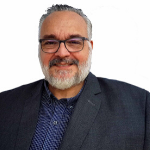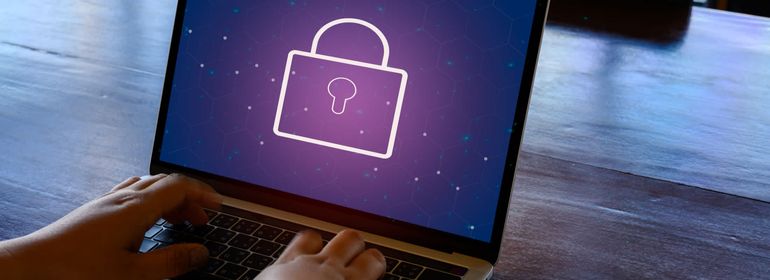
Latin America offers a complex environment for the practice of security, and perhaps nowhere is the situation more fraught than in Venezuela. We caught up with Caracas-native Alfredo Yuncoza to discuss how local and regional culture, politics, and geography inform the security profession. Yuncoza hosts a show on Radio Caracas Radio called “With Security,” and is the president of the security consulting and training firm ARCUS Group, where he partners with his wife. He also serves the President of Security College US. Yuncoza spent several years as Chief Security Officer for a wine and spirits manufacturing and distribution company.
(The interview was conducted in Spanish and translated into English.)
Venezuela is considered a failed state, with a breakdown in order, rampant inflation, and endemic violence. A lot of your colleagues have left, as have many family members. What keeps you there?
Loyalty to my country. Plus, I harbor hope that things will change. Over the past 20 years we have moved on from a democratic system that had a lot of its problems but was still the best system we could have. Right now we have a socialist government, which has entailed massive changes in health, education, politics, economy, etc. It’s not simple to live here. Quality of life has suffered, as has had the delivery of basic services. It’s true that lots of businesses and friends have left, but there is always hope that we can change things and get our country back.
How can you function effectively as a security executive in a socialist environment, especially given the lack of resources? Do you still have business clients? How do you serve them?
I choose to look at Venezuela as offering security professionals the most promise of any country in the world. We have to work with routine shortages like unstable internet. It keeps us on our toes. Yet, we can keep growing through education. And there are still businesses here that we can help. Their primary issues are a lack of qualified personnel because so many people have left the country. There’s also a lack of security training options and lack of access to technology due to regulations on imports from the United States. Moreover, Venezuela has the highest violence rate in the world [according to worldpopulationreview.com], not just Latin America. So violence is a huge issue that companies have to address. We have to keep developing services for businesses, by being very creative, innovative, resilient. You are right to be wary, but life goes on.
You have a program on Radio Caracas Radio. It was my pleasure to be a guest a couple of weeks ago. How did that start, what are you looking to achieve, and who are your guests?
It was our honor to have you on the show. The technical breakdown that occurred shows you our issues with reliable Internet! The idea to host a program was my wife’s, who had a photography show on the same channel. We have already done 70 episodes. The goal is to share best practices in all aspects of protecting citizens and businesses. It started out focused on Venezuela but expanded to cover practically the rest of the Americas. We’ve interviewed about 66 or 67 knowledgeable security professionals on the show. We’ve had guests from the U.S., Dominican Republic, Peru, Ecuador, Colombia, Uruguay, Mexico, Argentina.
You are heavily involved in academic activities, serving as president of Security College US after a term as its director of Latin American Studies. Tell us about that.
Our courses started by focusing on training and consulting. We saw that the level of security training in Venezuela was extremely basic. I believe training isn’t optional—it’s obligatory, foundational. You have to keep growing as a security professional or you become irrelevant, you die as a professional. We’ve now expanded into security management territory, areas where we never had courses. But the Coronavirus has blown up the classical pedagogy of a person lecturing in front of a classroom. What worked two or three months ago isn’t so useful anymore. This is giving us an opportunity to explore other learning modalities. In fact, we are developing a virtual corporate investigations course.
What issues, experiences, or mindsets set Latin American security professionals apart?
The Latin American security professional is culturally unique. We take the time to know the person before the business professional. But we’ve also been slow to professionalize. I think our profession is starting to open itself up to international standards. For a long time, security was an informal function, not backed up with educational rigor. That’s been changing little by little and gaining strength. There’s more training, research, and benchmarking. And not to belabor the point, but Latin America is exceptionally violent. That factors into what it takes to practice security. In managing risks, you have to realize there is tremendous political volatility. When you live in an area with instability, a lack of resources, and general scarcity, it forces you to be more creative, resourceful and innovative. I’m not saying that practicing security here is more difficult than in Europe or the United States. It’s just different.
The U.S. has struggled with COVID-19, but much of the nation has passed the first wave and expects a second round in fall or winter. Latin America is now just suffering the first wave, especially Brazil and Mexico. How can a security professional adapt to address the pandemic?
Personally, I think data is part of the problem: we don’t really have a good case count. Lamentably, China manipulated data so that the rest of the world couldn’t adequately prepare. That said, security has no choice but to adapt as this plays out. We have been placed in the role of safety professional, but it would be an error to pretend we are the experts in this area. It behooves us to align ourselves with a multidisciplinary team and serve as a contributor. Colleagues have told me about the deluge of bogus products, treatments, and solutions out there by people looking to make fast money, and identifying counterfeits is one way we can contribute to the team. And that’s the key—to protect people and assets through teamwork.




